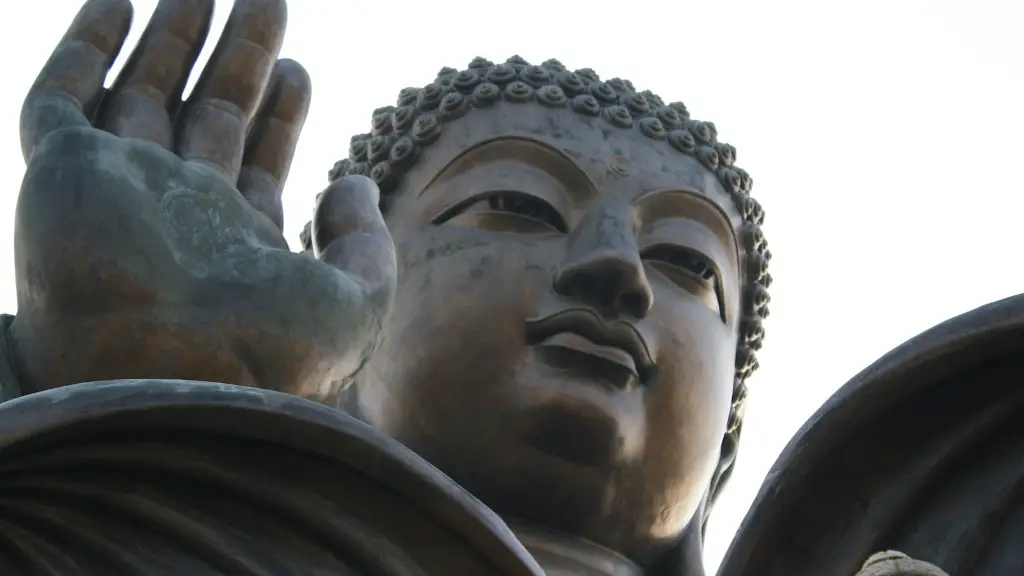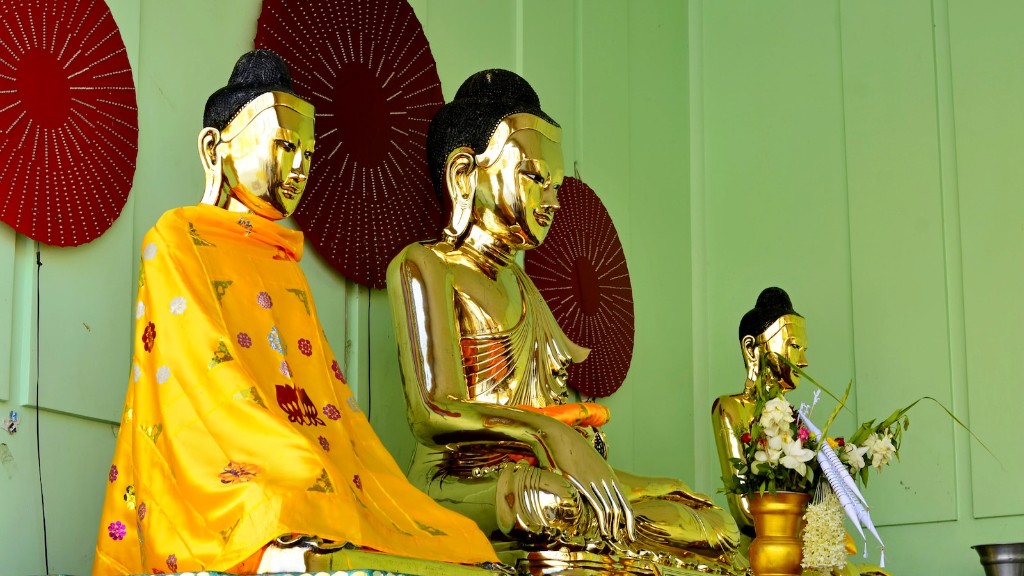Buddhism is a religion that was founded by Siddhartha Gautama in the fifth century BCE. The aim of Buddhism is to end suffering and to reach Nirvana. Nirvana is a state of complete peace and enlightenment.
The aim of Buddhism is to provide a path to liberation from suffering.
What are the three main goals of Buddhism?
In order to achieve our goals as Buddhists, we must first do no harm. We must then do only good, and finally purify our minds. This teaching emphasizes the importance of understanding what we should not do in order to achieve our goals.
In the Theravada tradition, the highest goal is Nirvana, or the liberation from cycles of rebirth. In the Mahayana tradition, the highest goal is Buddhahood, in which there is no abiding in Nirvana. Buddha helps liberate beings from Samsara by teaching the Buddhist path.
What are the core values of Buddhism
Buddhists strive to end suffering by seeing all things as having no self or essential nature. This allows them to live in the present moment and to let go of attachment to things that cause suffering. Buddhist values of love, wisdom, goodness, and self-control help to create a more peaceful world.
Karma is the belief that good or bad actions have consequences in the current life or in future lives.
What are the 5 Buddhist morals?
The precepts are a fundamental part of Buddhism and are meant to develop mind and character to make progress on the path to enlightenment. They are commitments to abstain from killing living beings, stealing, sexual misconduct, lying and intoxication. The precepts are an important part of the Buddha’s teachings and are meant to help us live more meaningful and ethical lives.
An important value in Buddhist ethics is non-harming or non-violence (ahimsa) to all living creatures from the lowest insect to humans. This value is associated with the first precept of not killing. Non-violence is a central tenet of Buddhism and is considered to be the highest form of compassion. It is important to remember that all living creatures have the same Buddha nature and are deserving of our compassion.
What is the most important Buddhist teaching?
Nirvana is the goal of the Buddhist path and the end of the cycle of rebirth. It is attained through the cessation of the kleshas, which are the root causes of suffering. The Buddha taught that the path to Nirvana is through the practice of the Noble Eightfold Path, which includes right understanding, right thought, right speech, right action, right livelihood, right effort, right mindfulness, and right concentration.
Ethical behavior is essential for leading a happy and fulfilling life. It helps us to be kind and compassionate towards others, and to act in ways that are beneficial to both ourselves and others. An enlightened mind is one that is aware of the interconnectedness of all things, and so is able to act in ways that are ethical and beneficial to all.
What is the Buddhist way of life
The ‘Middle Way’ is the Buddhist way of life; a self-development progression through the Noble Eight-fold Path which comprises Right Understanding, Right Thought, Right Speech, Right Action, Right Livelihood, Right Effort, Right Mindfulness and Right Concentration. The ‘Middle Way’ is often referred to as the ‘Golden Mean’ or the ‘Middle Path’; it is the path of moderation and balance. It is the path that leads to Enlightenment.
Food is prepared as a spiritual exercise with attention to balance, harmony, and delicacy. Conscious eating is followed among all Buddhists. Buddha advised monks to avoid eating 10 kinds of meat for self-respect and protection: humans, elephants, horses, dogs, snakes, lions, tigers, boars and hyenas.
Do Buddhist believe in good and evil?
There is no one definitive answer to this question. Buddhists may have differing opinions on the matter, but generally speaking, they do not believe that human beings are evil. Rather, they believe that humans create suffering through their own actions, such as greed, anger, and ignorance. If humans can learn to control these negative emotions and impulses, they can lessen the amount of suffering in the world.
Buddhist teaching views life and death as a continuum, believing that consciousness (the spirit) continues after death and may be reborn. Death can be an opportunity for liberation from the cycle of life, death and rebirth.
What do Buddhist do on a daily basis
The monks go on an alms round in the morning, which is the only other activity of the day besides morning chores, breakfast, and the main meal. At 7:00 pm, the community gathers for pūjā (worship), meditation, the taking of the precepts by the laity ( monks ), and a Dhamma talk (a religious discourse).
The Four Noble Truths are the central teaching of the Buddha. They are the truth of suffering, the truth of the cause of suffering, the truth of the end of suffering, and the truth of the path that leads to the end of suffering.
The truth of suffering is that life is full of suffering. Suffering is caused by our desires and our attachment to things. The truth of the cause of suffering is that our desires and attachments are the cause of our suffering. The truth of the end of suffering is that our suffering can be ended if we let go of our desires and attachments. The truth of the path that leads to the end of suffering is the Eightfold Path.
The Four Noble Truths are not a comprehensive explanation of the Buddhist teachings, but they are the essence of the Buddha’s teachings. By understanding the Four Noble Truths, we can begin to end our suffering and live a life of peace and happiness.
Do Buddhists drink coffee?
The fifth precept is “to refrain from taking intoxicants.” While the jury is still out on coffee consumption, most Buddhists believe coffee in moderation is perfectly fine, as long as it does not interfere with the fifth precept.
As Buddhists, we are taught that drinking or using other drugs can lead to carelessness and should be avoided. Our strong beliefs would thus lead us to abstain from alcohol use.
What do Buddhists pray for
Prayers to buddhas, bodhisattvas, and spiritual masters are meant to invoke the enlightened qualities of our own heart and mind. By letting go of the ego’s resistance to humility, we can connect with these qualities more deeply. Buddhist prayers can help us to become more compassionate, wise, and open-minded.
Buddha’s teachings can be summarised in the Four Noble Truths and the Noble Eightfold Path. The Four Noble Truths explain the main problem of human existence (suffering), its cause, and its remedy. The remedy is the Noble Eightfold Path, which is called the Middle Way or the Middle Path. This path leads to Nirvana, a state of total freedom from suffering.
Warp Up
The aim of Buddhism is to end suffering and live a life of enduring happiness.
Buddhism’s aim is to provide its followers with a path to spiritual enlightenment. This is done through the practice of meditation and the acquisition of Buddhist knowledge. Once a person has achieved enlightenment, they can then pass on their knowledge to others and help them to achieve the same goal.


